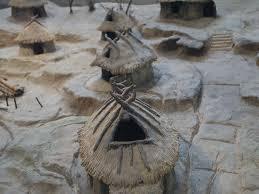The end of chapter two: making Rome a bit earlier
I know (and am very grateful) that some of you are keeping up with my progress on writing the history of Rome (SPQR = working title). I started a few weeks ago with an introductory chapter on Cicero vs Catiline. I have now just finished Chapter 2, which goes back to the earliest archaeological strata of Rome and its surroundings (that is where the poor moggy from Fidene comes in).
My basic point is that the stories of Romulus etc tell us huge amounts about how the Romans thought about themselves (the idea that they were destined to fratricide, for example, or that they were destined to welcome outsiders) even if they tell us almost nothing about what happened at the real "dawn of Rome".
To be honest, I have spent weeks and weeks, no months, reading up on the recent archaeology of the earliest stratum of Rome's history. But none of it has radically changed my view of anything. There is one general point: that radiocarbon and other forms of scientific dating have tended to push early Rome even earlier. It does seem that the traditional modern dating -- based on the dates of imported Greek pottery etc -- is all a bit too young. Rome in other words is older that we thought, and probably goes back someway before the traditional date (which ancient writers struggled to reach) of 753 BC for the foundation.
The relative picture remains more or less intact: basically Rome starts as a series of disggregated villages on the hills, and eventually becomes an aggregated town; but how and when, and under what conditions?
I guess you always do more work than you need when you are writing any sort of book. I was brimming with ideas about early Roman cemeteries and what they contain and how you might explain, for example, the difference between cremations and inhumations (is is it chronological or are actually cremations the rich burials -- as it take a lot more resources to burn a body successfully than to tip one into the ground). But not much of this has got through to the finished product.
I just hope that readers like examiners know that this is a reluctant selection of all I know!
It makes me recall what I say to students about exams, when they complain that they havent been able to get all their brilliant factoids into their scripts. I usually reply, with words to the effect of.. what is amazing, although you wont see it, is that examiners somehow sense when you know more than what you are putting down. So I hope that readers of my book will have an inkling of all that I have had to leave out.
I almost had to part company with the emperor Claudius' speech to the senate in which he argued for the admission of Gauls to the senate, one of the most extraordinary verbatim survivals from the ancient world. But in the end I found a few lines for his strange outburst about one Rome version of "multicuturalism".
Anyway I am on to the next chapter (PROVIDED the publisher thinks this one fits the bill) .. and the idea of the death of tyranny and the birth of liberty.
Mary Beard's Blog
- Mary Beard's profile
- 4110 followers




